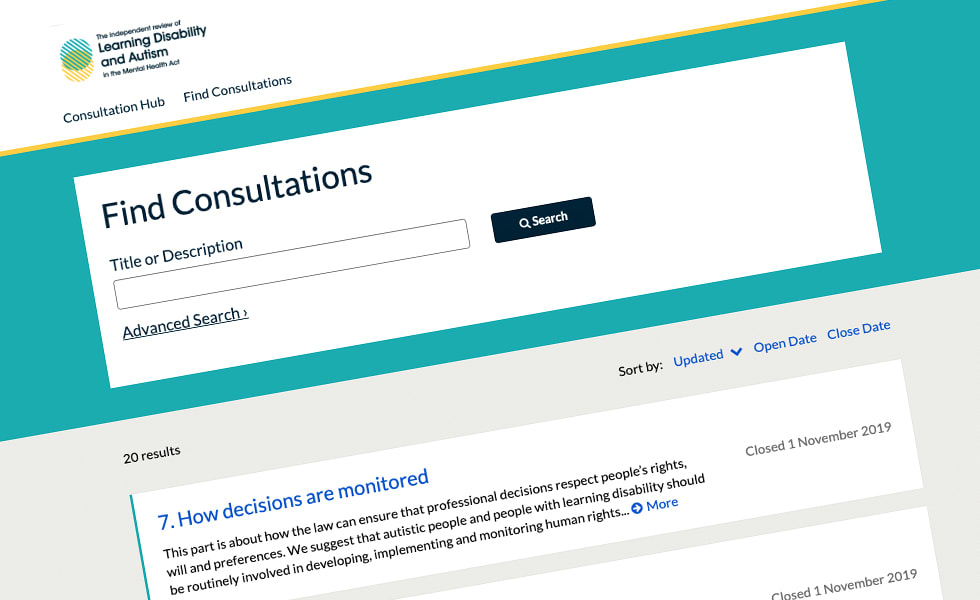Customer story: Independent Review of Disability and Autism MHA, UK
Independent Review Process

Reviewing the Mental Health Act
The Independent Review of Learning Disability and Autism in the Mental Health Act (IRMHA, for short) took place in 2019, and was established to assess whether provisions in the Scottish Mental Health Act pertaining to autism and learning disability needed updating or changing.
To fully understand the impacts of the Review’s proposed amendments to the Act, they needed to consult some particular demographics: those with autism and learning disabilities, as well as their carers and guardians, health professionals, charities and other stakeholders.
They ran the Review in three distinct stages: Discover (evidence gathering); Develop (creating draft reforms to the law); and Consult (asking the public their views on said reforms). They used Citizen Space for the final stage. In this stage, they ran a number of discrete surveys, each relating to different topics affected by the Mental Health Act.
Citizen Space was the ideal consultation tool for a number of reasons.
Accessibility
Citizen Space is fully compliant with WCAG 2.1 accessibility standards. That means it’s built to be accessible for people with disabilities or impairments as well as to those without - for example, with assistive technology like screen readers, as well as things like defined contrast levels (so, no yellow text on a white background). People with disabilities were a target demographic for the review, so their consultations needed impeccable accessibility standards in place.
The IRMHA ran a series of surveys in two formats: standard and easy-read. This meant that those responding to the consultation could access the surveys according to their own ability. The IRMHA stated in their final report that it ‘has been the most accessible review of a law that we are aware of’ at time of publishing.
Response publishing
As with any independent review, transparency and openness are integral to the process. In this case that responsibility was heightened due to the fact that many of those affected by the outcomes of the Review would be vulnerable individuals. Citizen Space is built with transparency in mind, with features like integrated feedback and response publishing.
IRMHA chose to publish responses on all of the surveys, and they received a good demographic mix of respondents. Submissions were received from people with lived experience, such as people with disabilities or carers/guardians, as well as professionals, health bodies and other stakeholder organisations.
Configurable hub
Citizen Space’s configurable hub allows organisations to customise the layout of their site. In this case, it meant they could clearly separate the easy-read versions of the surveys from the standard English versions, rather than everything being ordered alphabetically or according to date, which would have rendered navigation of the site confusing and inaccessible, particularly to those with learning disabilities.
The IRMHA fed back quickly and thoroughly - it took about six weeks, which is relatively short. They acknowledged in the report that they received a number of opposing views, but that overall respondents agreed with the direction in which the reforms were heading.
Want a real person to walk you through a live demo?
We’re happy to help out. We'll answer all your questions. We won't share your contact details.
Request a Free Demo